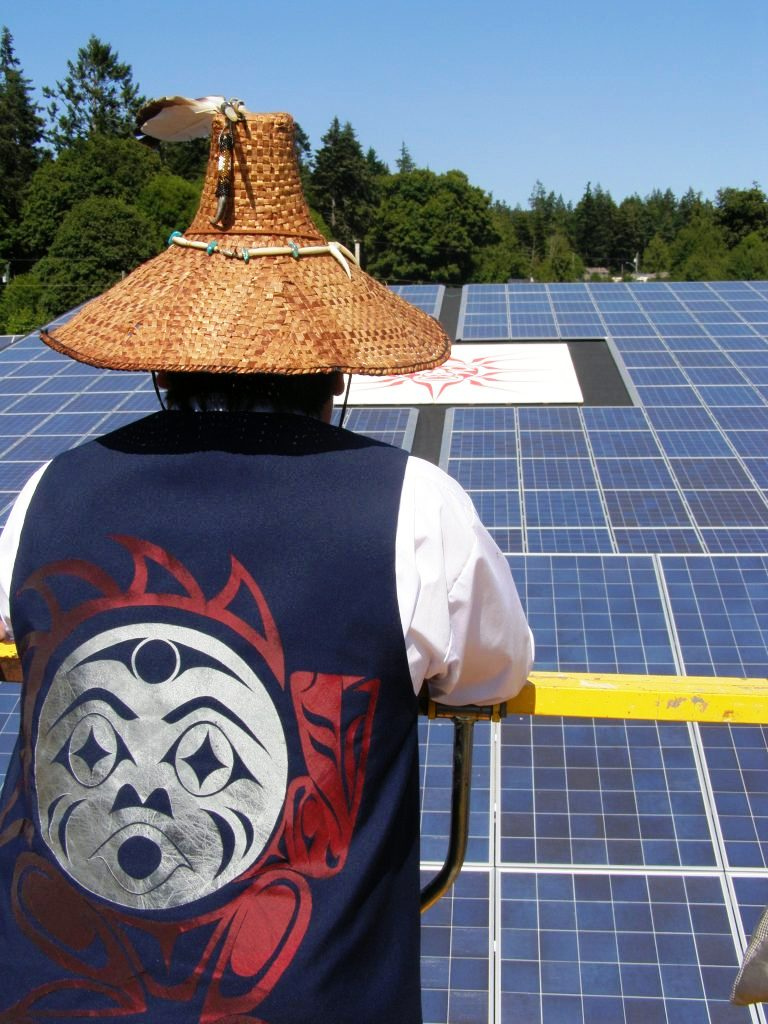By Katherine Gibson (The Cascade) – Email
Print Edition: May 21, 2014

For new UFV graduates, landing a coveted job position is an uncertain prospect in B.C.’s current economy — a fact Green Jobs B.C. hopes to change.
On May 13 a group of 30 people came together in Chilliwack’s Stó:l? Resource Centre to discuss the prospect of creating local jobs that are beneficial for both the economy and the environment.
The night was aimed at building a constructive dialogue between those working for Green Jobs B.C. and local individuals who understand the community in which they live. Representatives from the Sierra Club, a non-profit environmental organization, and the B.C. Government and Service Employees’ Union (BCGEU) were present during the event, adding their insight and expertise to the conversation.
Both the Sierra Club and BCGEU sit on the steering committee for Green Jobs B.C., giving this organization a unique perspective in approaching the creation of eco-friendly jobs.
“There can be no long-term environmental sustainability unless we also support workers, communities, and livelihoods — and vice versa,” explains Sierra Club campaign director Caitlyn Vernon. “There can be no long-term economy or jobs if we don’t have a healthy ecosystem to operate within.”
BCGEU president and co-chair of Green Jobs B.C. Darryl Walker also sees value in combining these two perspectives, noting that in the past the relationship between the environmental and labour communities has been less amicable.
“There was a time when environmentalists and labour fought each other,” says Walker. “We’ve always had a bit of a relationship, although a somewhat negative one. It’s like two fighting neighbours or brothers; if you can bring it together, you already have the relationship, you know each other — you can do more.”
Vernon also notes that building a sustainable economy is an important discussion for local communities to have in the face of issues like global warming.
“Climate change is not abstract: climate change is game on. The science is very clear that we need to transition to a green, low-carbon economy,” says Vernon. “[We need to come] together to talk about how are we going to transition to a green economy: what sorts of jobs can we support that help us shift away from our dependency on fossil fuels, and how [can] we support workers through that process.”
While the coalition between environmental and labour concerns strengthens the effectiveness of Green Jobs B.C., the choice to engage local individuals in the process also gives this initiative power.
“Creating the space to talk to each other is important and doing it in communities, not just doing it in conference centres in Vancouver, is important [too],” Vernon continues. “Trying to facilitate dialogue at the community level … is important and exciting.”
Walker also shares this sentiment, further asserting the importance of meeting people in the places that define who they are and the way they live.
“The best way to get in touch with people and get their involvement is to go to their communities. That’s where most people get their sense of who they are,” Walker concludes. “People want to be engaged … We don’t have to reinvent everything. There are green jobs all around us, but we have to recognize them for what they are and then we have to start selling them as important.”


